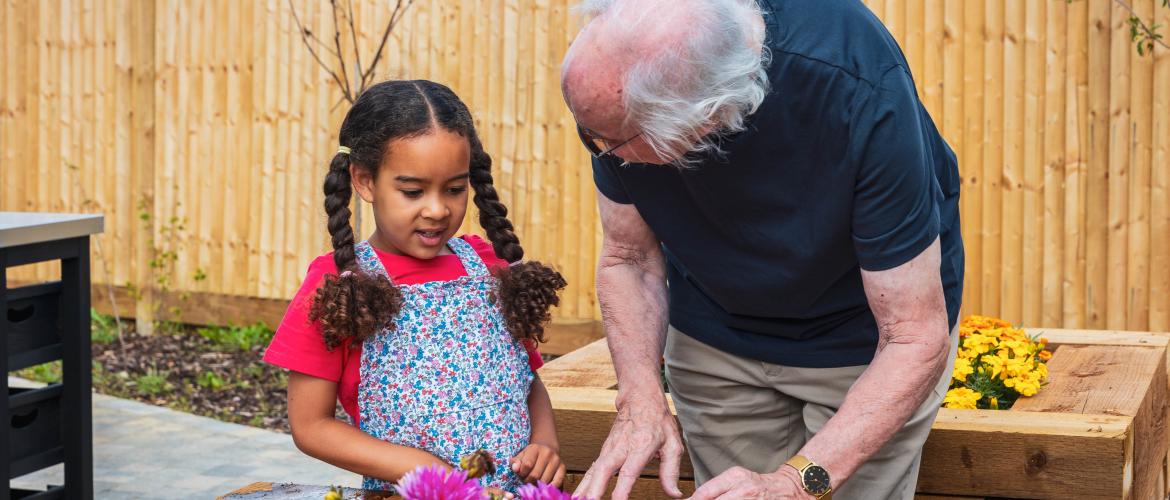
Why is early diagnosis of dementia important?
Although there is no cure for dementia, it’s important to get an early diagnosis to help slow down the progression. According to the National Library of Medicine, there will be a 57% increase in the number of people with dementia in England and Wales between 2016 and 2040. As a society, we should be aware of the signs and ways we can help, especially with the rapid increase of people living with dementia and the negative impact it can have on a person's life and their loved ones.
Practical advice for early diagnosis of dementia
Recognising the signs early allows you to manage the condition better. It offers the chance to get access to better healthcare, live independently in their own home for longer, and maintain a good quality of life for themselves. Not only this, but it offers a sense of relief as it puts an end to their suspicions.
Spotting the signs of early dementia
Being clued-up on the signs of early dementia is essential to getting better help. It's important to note that some people may mistake dementia signs as symptoms of ageing and so overlook the thought that a loved one may have dementia or dismiss the signs because they seem ‘too young’ to have it. Here are the common signs:
- Short-term memory issues
- Changes in mood or behaviour
- Confusion
- Behavioural changes
- Withdrawal from social activities
Tools and tests for early dementia diagnosis
If you think a loved one has dementia, there are a range of assessments they can take including mental ability tests, brain scans and blood tests:
Mental ability tests for dementia diagnosis –
The specialists will ask you to do several tests to determine how you answer different questions. All these tests have slightly different questions, all designed to assess your mental abilities in the same way. A common one used by GPs is the General Practitioner Assessment of Cognition (GPCOG).
These tests assess different mental abilities, including:
- Short and long-term memory
- Solving problems
- Interpreting shapes
- Concentration and attention span
- Factual information, for example, time and place
You don’t need to prepare anything for this test, but it's ideal to do it when you feel relaxed so you can do your best. It's important to note that intelligence level can affect scores. For example, a person who cannot read or write well may have a lower test score but may not have dementia.
Brain scans
These tests are often used as part of a wider assessment and used to check for evidence of other possible things that explain people's symptoms. Some people may opt for scans to look for changes in the brain. You may not need it, especially if you already know why you have certain symptoms.
Blood tests to clarify a diagnosis
There’s no single definitive blood test for dementia diagnosis. However, healthcare specialists may use blood tests to assess cognitive function and other causes that can be confused with dementia. These blood tests will check: liver, kidney and thyroid function, vitamin B12 and HbA1c.
The benefits of early diagnosis of dementia
Early detection of dementia helps people plan their future. It gives them time to plan and carry out their wishes while they have the ability to do so. It also explains changes in behaviour – it may be frustrating or worrying about loved ones to see a change in unexplained behaviour. Getting a diagnosis means people can adapt to their behaviour and learn how to support them better.
Impact on mental health with a dementia diagnosis
It’s natural to feel a range of emotions after you’ve been diagnosed with dementia. It can have a big impact on your mental health – you might feel shock, distressed and hopeless. Keep an open mind as your emotions may change from day-to-day – one day you may feel fine and accept the diagnosis, while another day you might feel angry. Other people’s reactions to the diagnosis can affect a person’s emotional state too. Comments like ‘I thought so’ or ‘your memory seems fine’ can be frustrating to hear.
Types of support available for people living with dementia
Receiving a dementia diagnosis can be difficult. And it’s okay if you feel like you need extra support following a diagnosis – you’re not alone in this journey. There’s a range of support available to support you.
Community support for people living with dementia
People should continue doing the things they love after receiving a dementia diagnosis so they can still lead fulfilling lives. Community support services can help you stay active within the community and connect with others living with dementia. It’s a great way to cope with your emotions, as you can express your emotions or give advice to people in similar situations.
Medical support for people living with dementia
If you struggle with managing your emotions, consider speaking to your local GP – they may refer you to counselling, which can help you make sense of their lives, grieve and continue to find new opportunities and meaning. Alternatively, you might find that talking therapies are better suited to you. Talking therapies are sessions where you can openly share your thoughts and emotions and receive coping strategies to help you during your day-to-day.
Dementia diagnosis and support for caregivers
Are you supporting someone with dementia? It may be difficult to know where to start or maybe you’re looking for help and advice. We’ve provided some resources below that may help you along your caregiving journey.